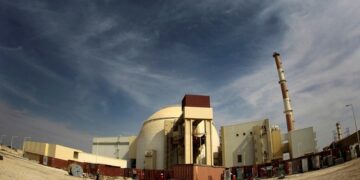US Intelligence Indicates Israel May Be Preparing Strikes on Iran’s Nuclear Facilities Amidst Diplomatic Uncertainty
Recent intelligence gathered by the United States suggests that Israel is actively preparing for potential military strikes against Iran’s nuclear facilities, according to a report by CNN citing multiple US officials familiar with the situation. This development reflects heightened tensions in the region and underscores the complexity of ongoing diplomatic efforts to resolve concerns over Iran’s nuclear program.
Rising Possibility of Israeli Military Action
While it remains unclear whether Israeli decision-makers have definitively committed to launching an attack, sources indicate that the likelihood of such an operation has significantly increased over recent months. The intelligence points to a growing sense of urgency within Israeli leadership, driven in part by concerns that a potential US-Iran nuclear agreement might not fully dismantle Iran’s uranium enrichment capabilities.
One source familiar with the intelligence detailed to CNN that if a diplomatic deal between the United States and Iran fails to secure the complete removal of Iran’s uranium stockpiles, Israel would be more inclined to carry out a strike. This scenario highlights a critical point of contention between the involved parties, as partial uranium removal could leave Iran’s nuclear program sufficiently intact to pose a continued threat from Israel’s perspective.
Divisions within the US Administration
The intelligence findings come amid internal divisions within the US administration regarding the likelihood and advisability of Israeli military action. Some officials express caution, concerned about the geopolitical ramifications of such a strike, while others acknowledge that it could become inevitable if diplomatic negotiations falter.
The National Security Council, the Israeli embassy in Washington, and the Israeli Prime Minister’s Office have not responded to requests for comment on the report, underscoring the sensitivity and potential volatility surrounding the issue.
Sources and Nature of Intelligence
The intelligence prompting these concerns is multifaceted. It incorporates public statements and private communications from senior Israeli officials, intercepted Israeli military communications, and observable military activity suggestive of preparatory measures for a strike.
Two sources cited by CNN confirmed that US surveillance detected signs of increased military readiness, including the mobilization of aerial munitions and the completion of a recent air drill, which could indicate operational preparedness.
These indicators suggest that while no definitive strike decision has been made, Israel is positioning itself to respond swiftly should circumstances necessitate military intervention.
Context of Ongoing US-Iran Negotiations
The report arrives against the backdrop of ongoing diplomatic negotiations between the Trump administration and Iranian officials. These talks aim to establish a new nuclear agreement that would limit Iran’s nuclear activities and prevent it from developing weapons-grade uranium.
However, negotiations have been fraught with challenges. Iran’s Supreme Leader, Ayatollah Ali Khamenei, recently denounced US demands for Tehran to halt uranium enrichment as “excessive and outrageous,” according to state media. He expressed deep skepticism about the prospects of reaching a viable deal, further complicating diplomatic efforts.
President Donald Trump has taken a firm stance, signaling a readiness to consider military options should the diplomatic process fail. He has also imposed a strict timetable on the negotiations, emphasizing the administration’s impatience with prolonged talks that fail to yield substantive progress.
The 60-Day Deadline and Current Status
In mid-March, President Trump sent a letter to Ayatollah Khamenei establishing a 60-day deadline for measurable progress in the negotiations. This deadline aimed to pressure Tehran into making concessions, with the implicit warning that failure to comply could trigger harsher consequences.
More than 60 days have now passed since the letter’s delivery, and 38 days have elapsed since the first round of talks commenced. Despite these efforts, substantial breakthroughs have yet to materialize, prompting speculation that both Washington and Jerusalem are preparing for alternative strategies to curb Iran’s nuclear ambitions.
Regional and Global Implications
The prospect of an Israeli strike on Iranian nuclear sites carries profound implications for regional stability and international relations. Iran has long vowed to retaliate forcefully against any attack on its sovereign territory, raising fears of escalation into a broader conflict involving multiple actors.
Such military action could destabilize an already volatile Middle East, impacting global energy markets and drawing in international powers. The situation also raises questions about the effectiveness of diplomatic negotiations and the potential limits of coercive strategies in resolving nuclear proliferation concerns.
Conclusion
In summary, US intelligence reports highlight a growing readiness on Israel’s part to conduct strikes against Iran’s nuclear infrastructure, fueled by concerns over the potential inadequacies of ongoing diplomatic negotiations. The situation remains fluid, with no confirmed decision to proceed with military action, but indications of increased preparedness signal a critical juncture in efforts to address Iran’s nuclear program.
As diplomatic efforts continue amid skepticism and firm deadlines, the international community watches closely. The unfolding developments emphasize the delicate balance between diplomacy and military posturing in safeguarding regional security and preventing nuclear proliferation.
Also Read : Mega Tsunamis and the US: How Real Is the La Palma-Style Threat to American Coastlines?















 Categories
Categories









